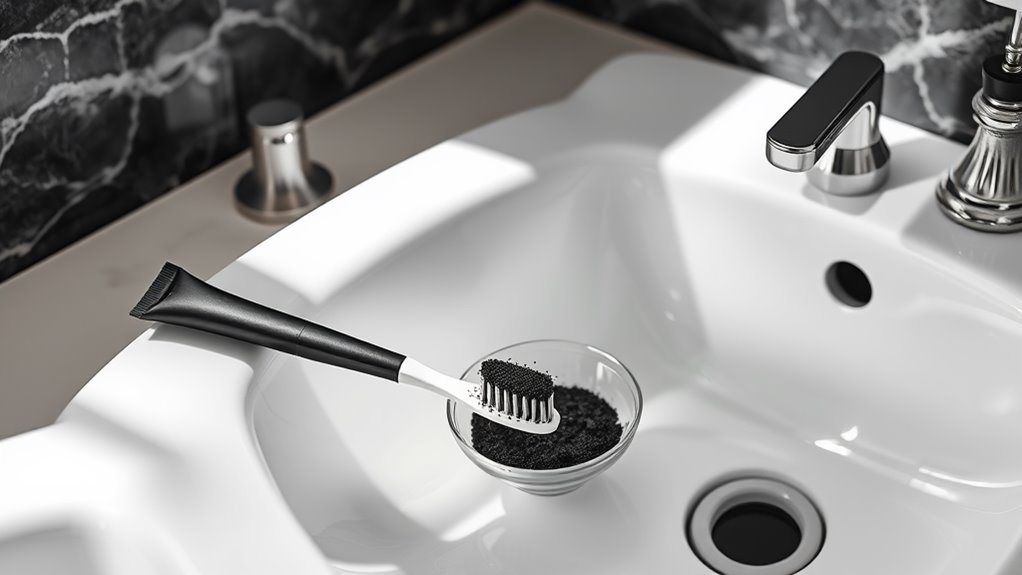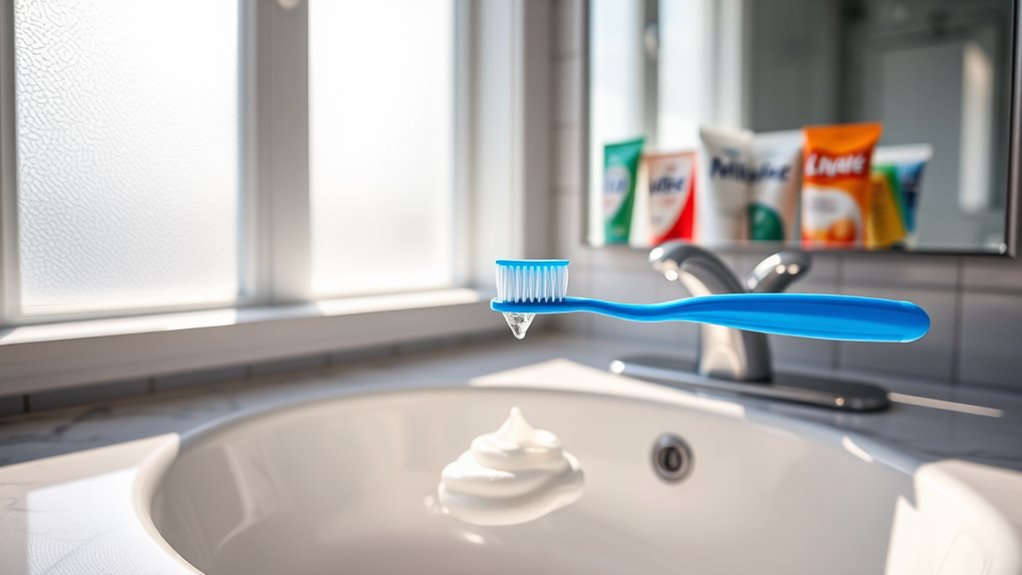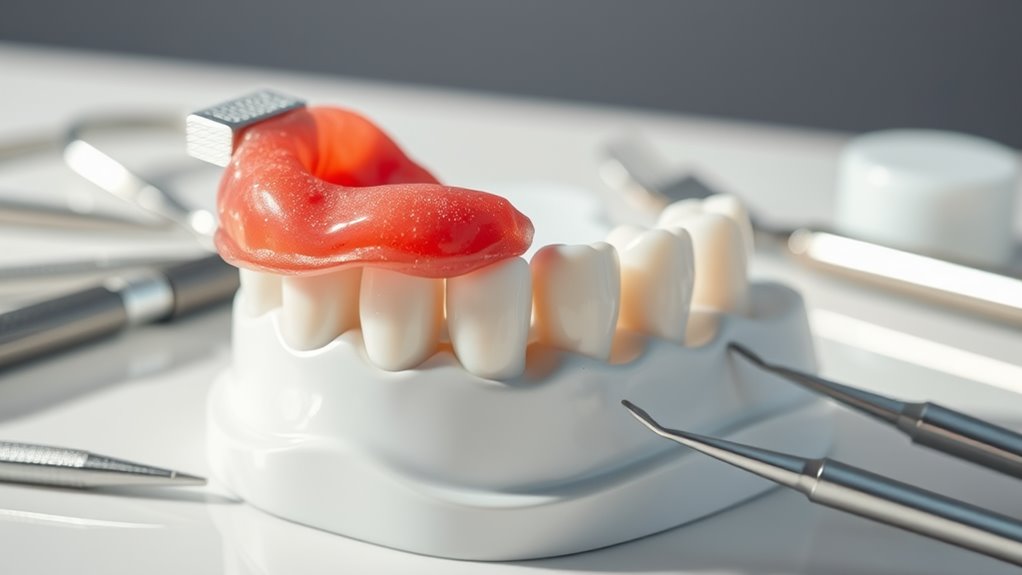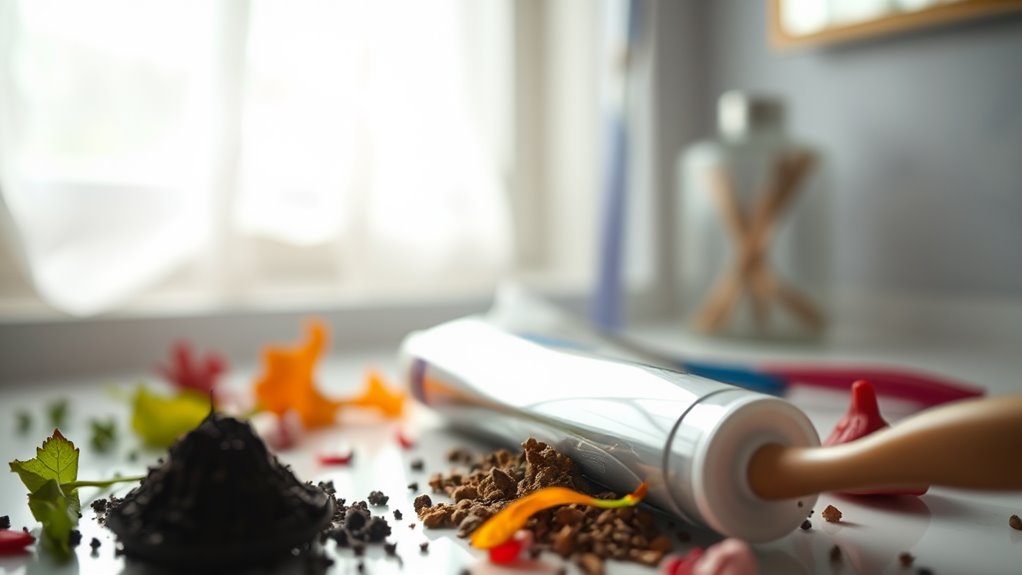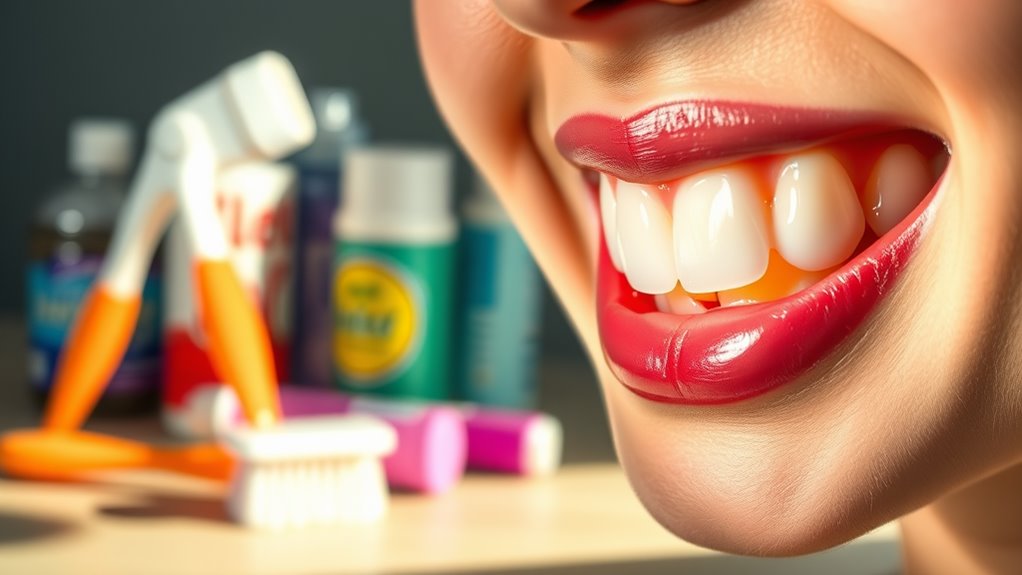Does Charcoal Toothpaste Actually Work The Shocking Truth!
Charcoal toothpaste claims to whiten teeth by lifting surface stains due to its absorbent nature. While some users report positive results, the potential risks—like enamel wear and irritation—should make you cautious. There’s little scientific evidence backing its effectiveness, and experts warn of the abrasive nature leading to dental issues. It’s important to weigh these factors before making a choice about your dental care. Discover what you should consider before trying charcoal toothpaste.
Understanding Charcoal Toothpaste: What Is It?
Charcoal toothpaste has gained popularity in recent years as a trendy dental care option. It typically contains activated charcoal, a fine black powder made from carbon-rich materials.
This ingredient is known for its absorbent properties, which some believe can help remove stains and toxins from teeth. You might’ve seen it touted as a natural alternative to traditional whitening toothpastes. Many brands market it as a way to achieve a brighter smile without harsh chemicals.
However, while it sounds appealing, it’s important to weigh the potential downsides, such as its abrasiveness. Regular use could wear down enamel, leading to sensitivity.
Understanding what charcoal toothpaste really is can help you make informed choices about your dental hygiene routine.
The Science Behind Charcoal and Teeth Whitening
Many people are drawn to the idea of using charcoal toothpaste for its potential teeth whitening benefits. Activated charcoal is known for its porous structure, which can adsorb substances, including stains on your teeth.
When you brush with charcoal toothpaste, the tiny particles cling to surface stains from food and drink, theoretically lifting them away. However, it’s crucial to recognize that while charcoal might remove some extrinsic stains, it doesn’t actually change the natural color of your teeth.
Additionally, studies on its effectiveness are limited, and there’s ongoing debate about whether it’s safe for long-term use. Some experts warn that its abrasive nature could potentially harm your enamel, leading to more issues down the line.
Potential Benefits of Using Charcoal Toothpaste
Although the effectiveness of charcoal toothpaste is still debated, some users report several potential benefits. You might find that using charcoal toothpaste offers the following advantages:
-
Whitening Effect: Many users believe it helps to remove surface stains, leaving your teeth looking brighter.
-
Natural Ingredients: Charcoal toothpaste often contains fewer artificial additives, appealing to those seeking a more natural oral care option.
-
Fresh Breath: Some users appreciate the invigorating feeling charcoal can provide, helping to combat bad breath.
While these benefits sound promising, it’s crucial to approach charcoal toothpaste with a critical eye and consider how it fits into your overall dental routine.
Always consult your dentist for personalized advice.
Risks and Concerns Associated With Charcoal Toothpaste
While charcoal toothpaste may seem appealing, it’s important to take into account the potential risks it poses to your dental health.
Many charcoal toothpastes are abrasive, which can wear down your enamel over time. Once enamel is lost, it doesn’t regenerate, leaving your teeth vulnerable to decay and sensitivity.
Additionally, charcoal can get trapped in gum pockets, possibly leading to gum irritation or inflammation. Some products lack fluoride, an essential mineral for preventing cavities.
You might also experience temporary discoloration or a gritty texture, which can be unappealing.
Always consult with your dentist before trying new products, as they can guide you on safe options tailored to your specific needs.
Protecting your smile should always come first.
Expert Opinions on Charcoal Toothpaste Effectiveness
When considering the effectiveness of charcoal toothpaste, experts often emphasize the lack of scientific evidence to support its claims.
Many dental professionals express skepticism, noting that the abrasive nature of charcoal can potentially harm enamel rather than enhance whitening or oral health.
Here are three key points experts often mention:
-
Limited Research: There’s a shortage of clinical studies proving charcoal toothpaste’s benefits.
-
Enamel Damage: Its abrasive properties can wear down tooth enamel, leading to sensitivity and decay.
-
Staining Risks: Charcoal can sometimes lead to staining, especially if it gets trapped between teeth or in dental work.
Making an Informed Decision: Should You Use Charcoal Toothpaste?
Are you considering charcoal toothpaste as part of your dental care routine? Before you engage, it’s essential to weigh the pros and cons.
While some users report whiter teeth and fresher breath, experts caution that charcoal’s abrasive nature can damage enamel over time. Additionally, it may not effectively remove plaque like traditional toothpaste.
If you’re curious about its benefits, consider using it occasionally rather than daily. Always check for fluoride content too, as this mineral is important for cavity prevention.
Consult your dentist before making the switch, especially if you have sensitive teeth or existing dental issues. Ultimately, staying informed will help you make a choice that best suits your oral health needs.
Frequently Asked Questions
Can Charcoal Toothpaste Prevent Bad Breath Effectively?
Charcoal toothpaste might help reduce bad breath by absorbing bacteria and impurities. However, it’s crucial to maintain regular brushing and flossing habits. You shouldn’t rely solely on it for fresh breath or oral health.
Is Charcoal Toothpaste Safe for Sensitive Teeth?
If you’ve got sensitive teeth, charcoal toothpaste might not be the best choice. Its abrasiveness can aggravate sensitivity, so you should consider a gentler option that protects your enamel and keeps your teeth comfortable.
How Often Should You Use Charcoal Toothpaste?
You should use charcoal toothpaste sparingly, ideally once or twice a week. Overuse can lead to enamel erosion and tooth sensitivity. Always balance it with regular toothpaste to maintain peak oral health and hygiene.
Does Charcoal Toothpaste Damage Dental Fillings?
Charcoal toothpaste can potentially damage dental fillings due to its abrasive nature. You should be cautious when using it, especially if you have fillings. Regular dental check-ups can help monitor any potential issues.
Can Children Use Charcoal Toothpaste Safely?
You should be cautious about letting children use charcoal toothpaste. Its abrasiveness might harm delicate enamel, and the safety of ingesting it isn’t well-established. Always consult your pediatric dentist before introducing new oral care products.
